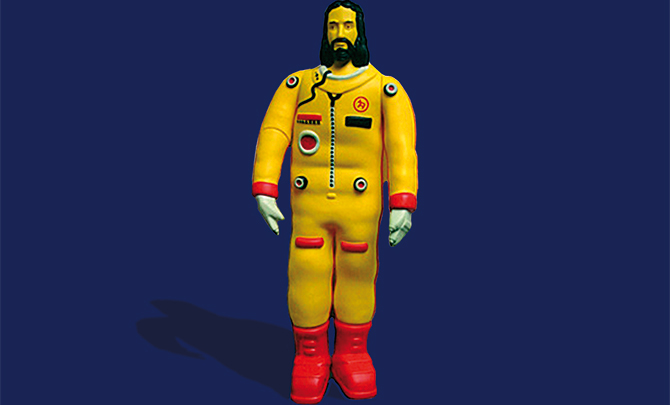Jumble sales of the apocalypse: Plastic piety - Reform Magazine
Simon Jenkins talks plastic piety
Walking down a rainy street in Lisbon, I unexpectedly discovered a Roman Catholic supplies store in a side street. Normally, I notice unusual shops when something in their window catches my eye, but this time was different. What grabbed my attention, from 20 metres or more away, was a huge gust of sweet frankincense rolling down the street and straight up my nose, as though the Pope himself, borne up by angels, was floating by on an almighty cloud of holy perfume.
I steered straight into the shop, which turned out to be a flamboyantly Brazilian Catholic store, with aisles chock full of everything you could ever imagine to accessorise your faith. There were candles and rosaries, sachets of incense, bottles of holy oil, and even (new to me) flesh-coloured plastic body parts, such as hands, feet and ears, for use in prayers for healing. But above all, the sacred store had exactly what I was looking for: shelves populated by thousands of statues of plastic popes, nuns gazing up to heaven, holy infants, saints on horseback, martyrs bristling with arrows, plus Joseph, Mary and Jesus – all of them available in sizes ranging from XXS to XXL.
I felt right at home, because I’ve been collecting plastic statues of Jesus on eBay for several years – some of them manufactured to bless the dashboards of automobiles, others to go next to the geranium at home. My prize Jesus is a pearlised dashboard deity from the US, complete with a halo studded with flashing rhinestones. He’s joined in my collection by a tiny replica of the Rio Christ, a bizarre astronaut Jesus in a spacesuit and helmet, together with saviours which light up, glow in the dark, roll around on clockwork wheels, or which have divine rays coming out of their plastic sacred hearts.
The kitschy, mass-produced statues of plastic Jesus have fascinated me for a long time, and that’s because they simultaneously attract and repel. On the attract side, I like how they point to a much more matter-of-fact religion than my own. Take the Jesus I bought on eBay several years ago. He stands 10 inches tall, looks like Robert Powell in Jesus of Nazareth, was made in Wisconsin in the 1950s and arrived in a box filled with scrunched newspaper. As I unwrapped him, he gave me a big surprise because he reeked of about a million cigarettes. Jesus seemed to look up at me with bloodshot eyes and wheeze: ‘In the house I came from, everyone was on 40 a day, minimum.’
Meanwhile, on the repel side, every plastic Jesus statue I own looks perpetually solemn and sad. His expression is forever stuck on mild disapproval.
When I was growing up, I hardly saw any statues of Jesus, plastic or otherwise, because I had practically no contact with the wonderful world of Catholicism. But I vividly remember going every now and then to my grandparents’ next-door neighbour, Mrs Powell, and having a glass of orange squash in her cosy living room. Mrs Powell was a lovely person but she was quite fiercely Protestant, and she had a wooden plaque, high up on the wall, on which I read these words: ‘Christ is the head of this house; the unseen guest at every meal; the silent listener to every conversation.’
Contemplating this unsettling message over orange squash, I sensed it wasn’t intended to cheer you up. Reading the plaque was like wandering into a lift on the 99th floor and plummeting to the basement in five seconds flat. I imagined being with my family for a jolly Sunday lunch, then Jesus gliding in silently in his robes and sandals, sitting down, and killing the conversation dead with his long face. He could even have had a promising second career in the Stasi: sitting in an unmarked van with blacked-out windows outside Mrs Powell’s house, headphones clamped over his long hair, a tape recorder turning in the background, reaching for the phone to get you picked up by the archangelic police.
Jesus statues and the ‘unseen guest’ plaque are aiming at the same thing: there’s more than a whiff of surveillance about them both. No wonder plastic Jesus always seems to be sad or bored, like a Facebook employee having to scroll through people’s personal data all day. I’m sure Jesus didn’t intend it as a threat when he said: ‘I am with you always, to the end of time,’ which is why it’s wrong, as well as sad, when plastic piety turns his words into exactly that.
Simon Jenkins is Editor of shipoffools.com. His book, Jumble Sales of the Apocalypse (SPCK, 2017) is available from urcshop.co.uk for £9.99
___
This article was published in the May 2018 edition of Reform














Submit a Comment